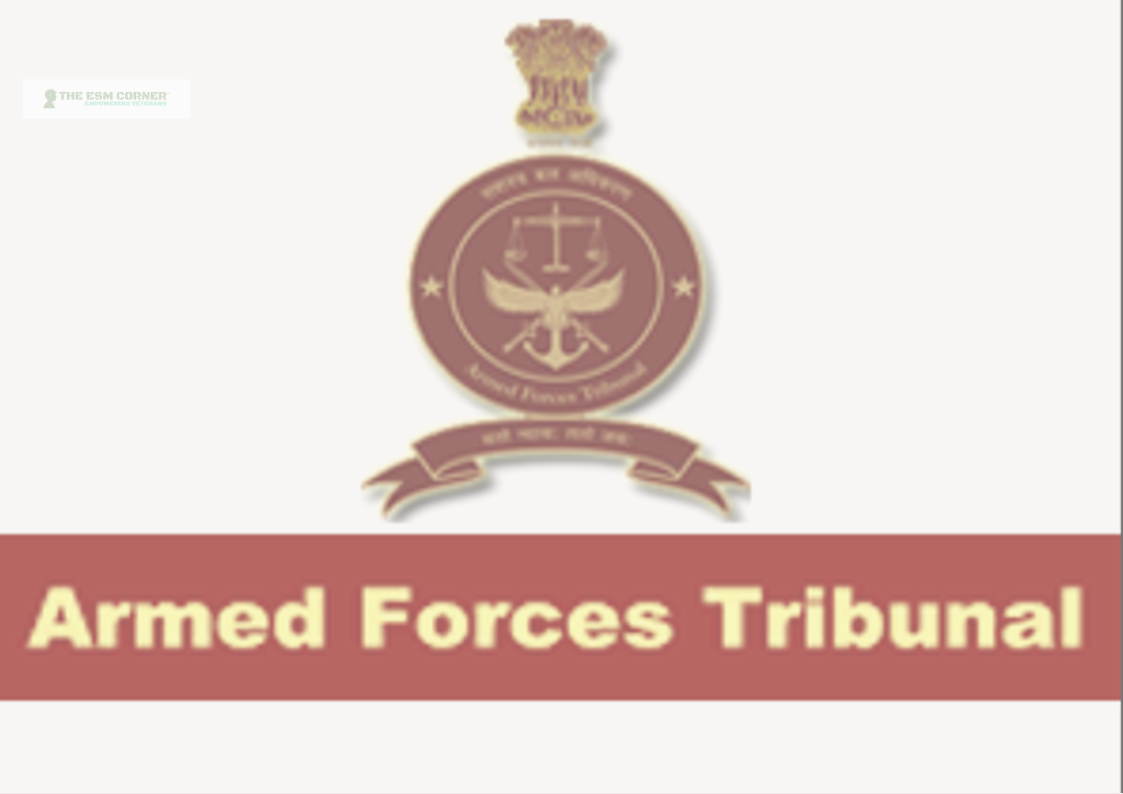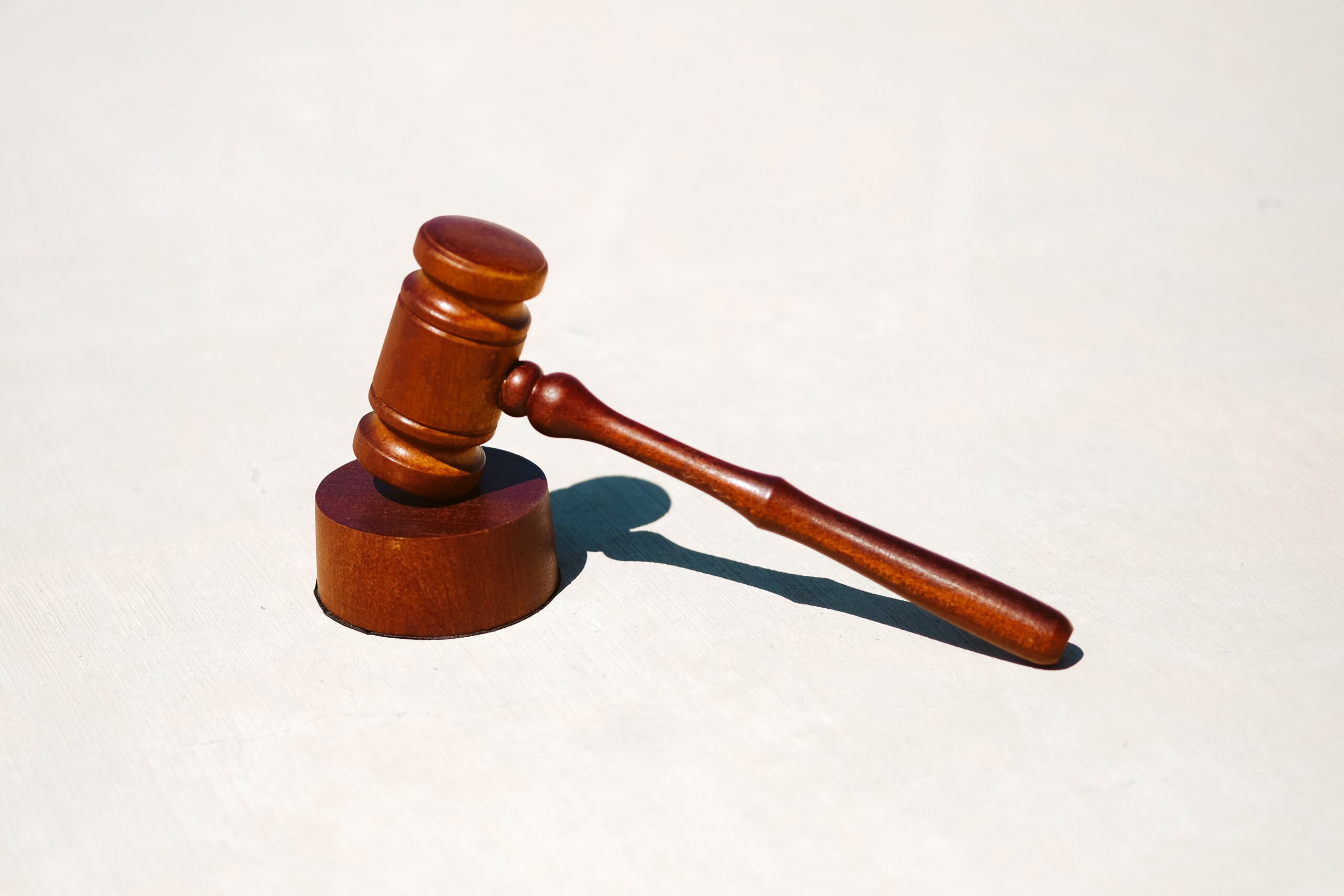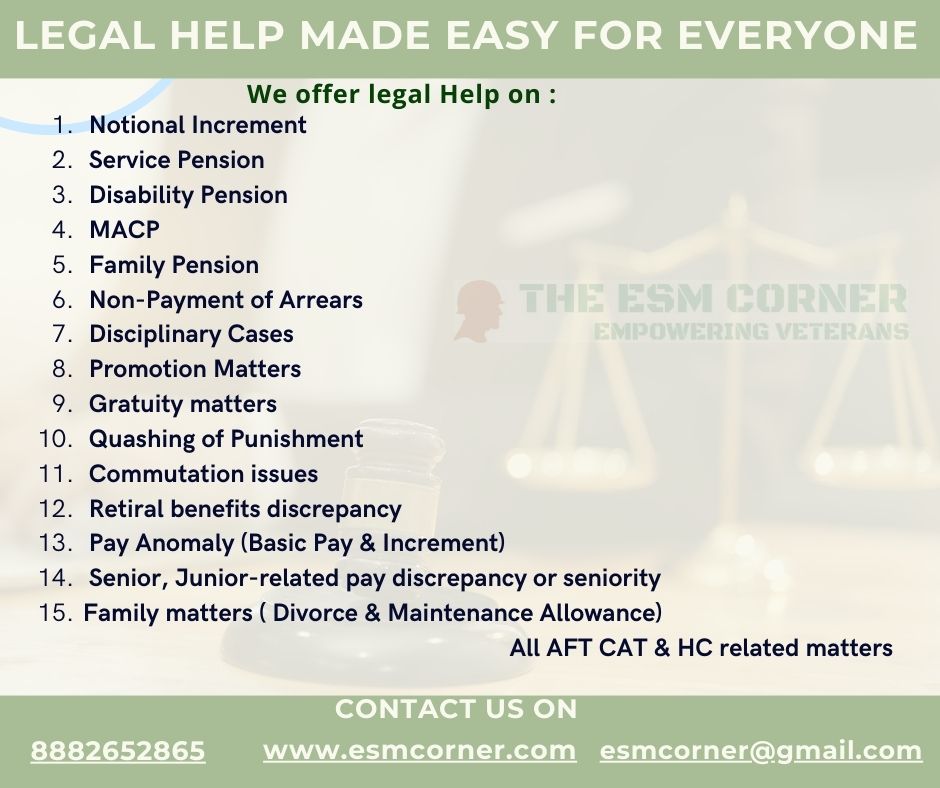
Introduction to Armed Forces Tribunal (AFT):
The Armed Forces Tribunal (AFT) was established in 2009 under the Armed Forces Tribunal Act, 2007, and plays a crucial role in addressing disputes and complaints related to service conditions and court-martial verdicts involving personnel from the Army, Navy, and Air Force.
Structure and Composition:
The AFT comprises a chairperson, typically a retired Supreme Court judge or a former chief justice of a high court, along with judicial and administrative members who are retired high court judges or senior officers from the armed forces, including the Judge Advocate General.
Jurisdiction:
The tribunal operates through its principal bench in New Delhi and 10 regional benches across key locations in India. These include
Chandigarh
Lucknow
Kolkata
Guwahati
Chennai
Kochi
Mumbai
Jaipur
Jabalpur
Jammu.
However, it’s essential to note that the AFT’s jurisdiction excludes paramilitary forces like the Assam Rifles and the Coast Guard.

Functions and Powers:
The AFT is a court that follows the rules of the Indian high courts. It can decide on matters related to the armed forces, such as their jobs, salaries, and promotions. It can also review the decisions or punishments given by the military courts under the laws of each service.
Appeals and Legal Recourse:
Earlier, if someone was dissatisfied with the decisions of the Armed Forces Tribunal, they could only appeal to the Supreme Court, and not the High Courts. However, now individuals can move to the High Court as well. This change highlights the continued significance of the Tribunal while offering broader avenues for appeal and ensuring consistent handling of legal cases.
Mission and Objectives:
The AFT wants to give quick and fair justice to armed forces members, protecting their respect and pride. At the same time, it tries to make the public sector more open, responsible, and respectful of democracy.
Getting More Information:
If you want to know more about the AFT, you can visit its official website.
Summary:
The Armed Forces Tribunal is an important court in India’s legal system, made for the special needs of armed forces members. By following the rules of justice and fairness, the AFT helps to keep the military in good shape and order.
FAQ about AFT
Armed Forces Tribunal is a military tribunal in India established in 2009 under the Armed Forces Tribunal Act, 2007. It adjudicates disputes related to commission, appointments, enrolments, and conditions of service for individuals under the Army, Navy, and Air Force Acts.
The tribunal comprises a chairperson (retired Supreme Court judge or retired chief justice of a high court), judicial members (retired high court judges), and administrative members (retired armed forces members or Judge Advocate General). It operates through a principal bench in New Delhi and regional benches in ten cities.
The tribunal follows the procedure practiced in the High Court of India, as outlined in the Armed Forces Tribunal (Procedure) Rules, 2008. It has the authority to grant bail, issue orders and writs, review its decisions, transfer cases between benches, and appoint commissioners or experts.

The tribunal deals with service matters and appeals from court-martial decisions involving personnel from the army, navy, and air force. Service matters cover a wide range, including issues related to pay, pension, promotion, discipline, retirement, and more. Appeals from military court decisions are about whether those decisions are legal, proper, or right.
Appeals to the Armed Forces Tribunal can be made against any order, decision, finding, or sentence passed by a court-martial. The tribunal holds jurisdiction over matters connected with or incidental to these decisions. Appeals from the AFT can be made only to the Supreme Court, not the high courts.
To file a case, apply the prescribed form with the necessary documents and fees. This can be done in person, by an authorized representative, or through registered post or courier. The application should be filed within six months from the date of the order or decision and can be submitted to the principal bench or the relevant regional bench.
To appeal, file an appeal in the Supreme Court of India within 90 days from the date of the tribunal’s decision. The appeal should focus on a point of law or a substantial question of law. It can be filed in person, by an authorized representative, or through registered post or courier, either in the Supreme Court registry or the nearest High Court registry.
The tribunal offers a swift and effective remedy for armed forces personnel and their families facing service-related grievances or court-martial decisions. It makes sure that the military follows the rules of justice and fairness, protecting the rights and interests of armed forces members while keeping the respect and pride of the uniform.
Remember to consult the official Armed-Forces Tribunal website or legal experts for the most accurate and up-to-date information.
Click here for ESM CORNER’s legal help expert.
Click here to Join ESM CORNER Legal Help WhatsApp Group






[…] Click here to learn more about Armed Forces Tribunal (AFT). […]
[…] Click here to explore the Armed Forces Tribunal and learn how it provides speedy justice for serving and retired personnel. […]
[…] 👉 Click here to explore the Armed Forces Tribunal and learn how it provides speedy justice for serving and retired personnel. […]